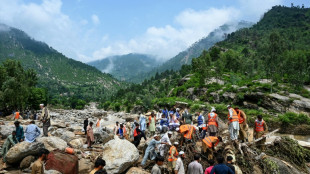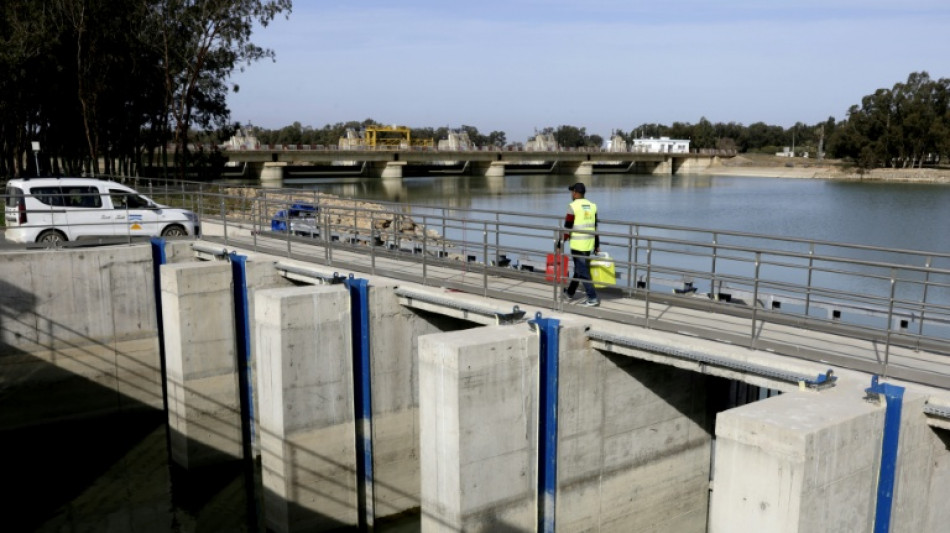
-
 Six in a row for Marc Marquez with victory at Austrian MotoGP
Six in a row for Marc Marquez with victory at Austrian MotoGP
-
Spain PM vows 'climate pact' on visit to fire-hit region
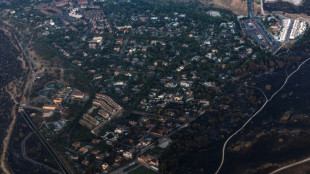
-
 Serbia's president vows 'strong response' after days of unrest
Serbia's president vows 'strong response' after days of unrest
-
Brazilian goalkeeper Fabio equals Shilton record for most games played
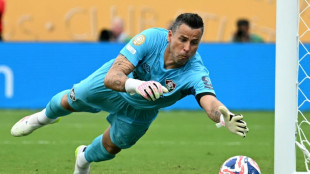
-
 Warholm in confident swagger towards Tokyo worlds
Warholm in confident swagger towards Tokyo worlds
-
Air Canada to resume flights after govt directive ends strike
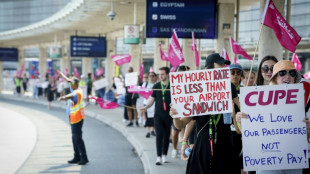
-
 Israelis rally nationwide calling for end to Gaza war, hostage deal
Israelis rally nationwide calling for end to Gaza war, hostage deal
-
European leaders to join Zelensky for Ukraine talks with Trump

-
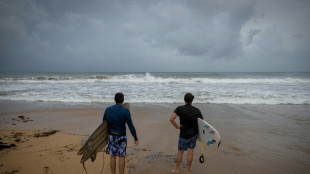 Downgraded Hurricane Erin lashes Caribbean with rain
Downgraded Hurricane Erin lashes Caribbean with rain
-
Protests held across Israel calling for end to Gaza war, hostage deal

-
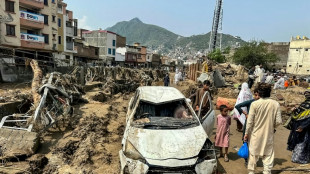 Hopes for survivors wane as landslides, flooding bury Pakistan villages
Hopes for survivors wane as landslides, flooding bury Pakistan villages
-
After deadly protests, Kenya's Ruto seeks football distraction

-
 Bolivian right eyes return in elections marked by economic crisis
Bolivian right eyes return in elections marked by economic crisis
-
Drought, dams and diplomacy: Afghanistan's water crisis goes regional
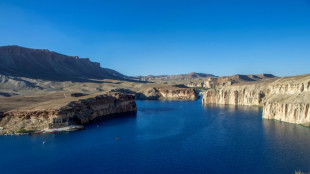
-
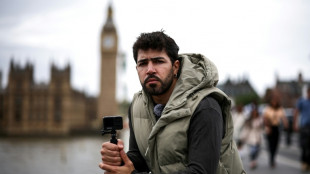 'Pickypockets!' vigilante pairs with social media on London streets
'Pickypockets!' vigilante pairs with social media on London streets
-
From drought to floods, water extremes drive displacement in Afghanistan
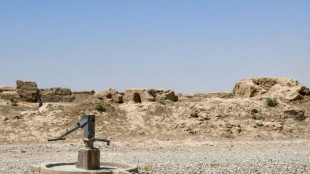
-
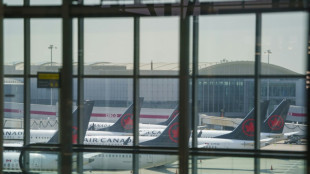 Air Canada flights grounded as government intervenes in strike
Air Canada flights grounded as government intervenes in strike
-
Women bear brunt of Afghanistan's water scarcity
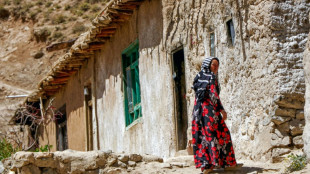
-
 Reserve Messi scores in Miami win while Son gets first MLS win
Reserve Messi scores in Miami win while Son gets first MLS win
-
Japan's Iwai grabs lead at LPGA Portland Classic

-
 Trump gives Putin 'peace letter' from wife Melania
Trump gives Putin 'peace letter' from wife Melania
-
Alcaraz to face defending champ Sinner in Cincinnati ATP final
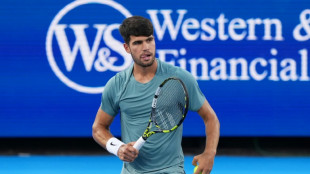
-
 Former pro-democracy Hong Kong lawmaker granted asylum in Australia
Former pro-democracy Hong Kong lawmaker granted asylum in Australia
-
All Blacks beat Argentina 41-24 to reclaim top world rank

-
 Monster birdie gives heckled MacIntyre four-stroke BMW lead
Monster birdie gives heckled MacIntyre four-stroke BMW lead
-
Coffee-lover Atmane felt the buzz from Cincinnati breakthrough
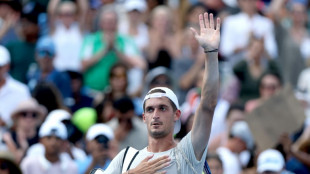
-
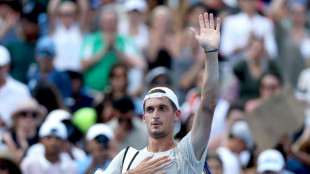 Coffe-lover Atmane felt the buzz from Cincinnati breakthrough
Coffe-lover Atmane felt the buzz from Cincinnati breakthrough
-
Monster birdie gives MacIntyre four-stroke BMW lead

-
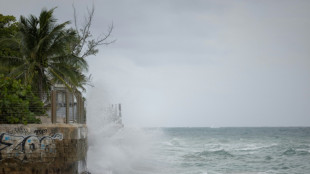 Hurricane Erin intensifies offshore, lashes Caribbean with rain
Hurricane Erin intensifies offshore, lashes Caribbean with rain
-
Kane lauds Diaz's 'perfect start' at Bayern

-
 Clashes erupt in several Serbian cities in fifth night of unrest
Clashes erupt in several Serbian cities in fifth night of unrest
-
US suspends visas for Gazans after far-right influencer posts

-
 Defending champ Sinner subdues Atmane to reach Cincinnati ATP final
Defending champ Sinner subdues Atmane to reach Cincinnati ATP final
-
Nigeria arrests leaders of terror group accused of 2022 jailbreak

-
 Kane and Diaz strike as Bayern beat Stuttgart in German Super Cup
Kane and Diaz strike as Bayern beat Stuttgart in German Super Cup
-
Australia coach Schmidt hails 'great bunch of young men'

-
 Brentford splash club-record fee on Ouattara
Brentford splash club-record fee on Ouattara
-
Barcelona open Liga title defence strolling past nine-man Mallorca

-
 Pogba watches as Monaco start Ligue 1 season with a win
Pogba watches as Monaco start Ligue 1 season with a win
-
Canada moves to halt strike as hundreds of flights grounded
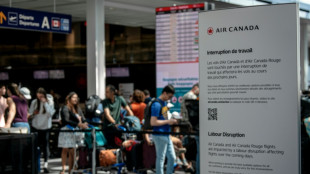
-
 Forest seal swoop for Ipswich's Hutchinson
Forest seal swoop for Ipswich's Hutchinson
-
Haaland fires Man City to opening win at Wolves

-
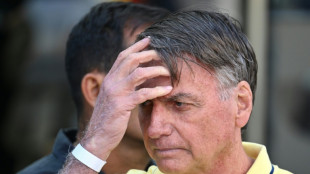 Brazil's Bolsonaro leaves house arrest for medical exams
Brazil's Bolsonaro leaves house arrest for medical exams
-
Mikautadze gets Lyon off to winning start in Ligue 1 at Lens

-
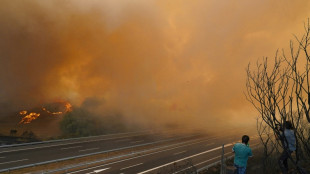 Fires keep burning in western Spain as army is deployed
Fires keep burning in western Spain as army is deployed
-
Captain Wilson scores twice as Australia stun South Africa

-
 Thompson eclipses Lyles and Hodgkinson makes stellar comeback
Thompson eclipses Lyles and Hodgkinson makes stellar comeback
-
Spurs get Frank off to flier, Sunderland win on Premier League return

-
 Europeans try to stay on the board after Ukraine summit
Europeans try to stay on the board after Ukraine summit
-
Richarlison stars as Spurs boss Frank seals first win


Morocco 'water highway' averts crisis in big cities but doubts over sustainability
Morocco is spending hundreds of millions of dollars on tapping northern rivers to supply water to parched cities farther south but experts question the sustainability of the project in the face of climate change.
The North African kingdom has spent $728 million so far on what it dubs a "water highway" to redirect the surplus flow of the Sebou River to meet the drinking water needs of capital Rabat and economic hub Casablanca, according to official figures.
In the future, it plans to tap other northern rivers to extend the project to the southern city of Marrakesh.
Officials say the project has been a success in heading off the immediate threat to the water supply of the country's most populous region.
"Transferring surplus water from the Sebou basin in the north allowed us to prevent about 12 million people from running out of water," said senior agriculture ministry official Mahjoub Lahrache.
In late 2023, the capital Rabat and its surrounding region came perilously close to running out of water when the main reservoir supplying the city ran dry.
Morocco has long suffered from extreme disparities in rainfall between the Atlas mountain ranges and the semi-arid and desert regions farther south.
"Fifty-three percent of rainfall occurs in just seven percent of the national territory," Water Minister Nizar Baraka told AFP.
In the past, rainfall in the Atlas ranges has created sufficient surplus flow on most northern rivers for them to reach the ocean even in the driest months of the year.
It is those surpluses that the "water highway" project seeks to tap.
A diversion dam has been built in the city of Kenitra, just inland from the Atlantic coast, to hold back the flow of the Sebou River before it enters the ocean.
The water is then treated and transported along a 67-kilometre (42-mile) underground canal to supply residents of Rabat and Casablanca.
Inaugurated last August, the "water highway" had supplied more than 700 million cubic metres (24.7 billion cubic feet) of drinking water to the two urban areas by early March, according to official figures.
But experts question how long the Sebou and other northern rivers will continue to generate water surpluses that can be tapped.
- Six-year drought -
The kingdom already suffers from significant water stress after six straight years of drought.
Annual water supply has dropped from an average of 18 billion cubic metres in the 1980s to just five billion today, according to official figures.
Despite heavy rains in the northwest in early March, Morocco remains in the grip of drought with rainfall 75 percent below historical averages.
The dry spell has been "the longest in the country's history", the water minister said, noting that previous dry cycles typically lasted three years at most.
Rising temperatures -- up 1.8 degrees Celsius last year alone -- have intensified evaporation.
Experts say that climate change is likely to see further reductions in rainfall, concentrated in the very areas from which the "water highway" is designed to tap surplus flows.
"Future scenarios indicate that northern water basins will be significantly more affected by climate change than those in the south over the next 60 years," said water and climate researcher Nabil El Mocayd.
"What is considered surplus today may no longer exist in the future due to this growing deficit," he added, referencing a 2020 study in which he recommended scaling back the "water highway".
Demand for water for irrigation also remains high in Morocco, where the farm sector employs nearly a third of the workforce.
Researcher Abderrahim Handouf said more needed to be done to help farmers adopt water-efficient irrigation techniques.
Handouf said the "water highway" was "an effective solution in the absence of alternatives" but warned that climate challenges will inevitably "create problems even in the north".
"We must remain cautious," he said, calling for greater investment in desalination plants to provide drinking water to the big cities.
R.Braegger--VB

